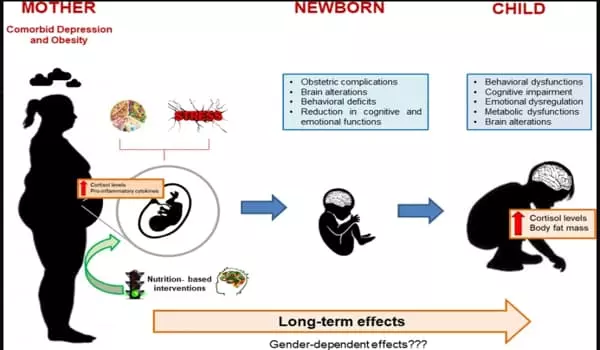The etiology of mental health problems in young children has piqued the interest of researchers and clinicians alike. Early childhood is a critical period of emotional, social, and behavioral development; mental health problems can manifest as internalizing behaviors such as fearfulness and social withdrawal, as well as externalizing behaviors such as irritability, temper outbursts, and oppositional, non-compliant behavior. Young children who have such concerns face difficulties as they grow older; over time, these difficulties are linked to poor academic, employment, and health outcomes.
According to researchers, a secondary analysis of the Fragile Families and Child Wellbeing Study (Fragile Families) discovered a bi-directional relationship in which a mother’s mental health symptoms influenced the child’s mental health symptoms and vice versa.
According to researchers at The University of Texas Health Science Center at Houston’s Cizik School of Nursing, a secondary analysis of the Fragile Families and Child Wellbeing Study (Fragile Families) discovered a bi-directional relationship in which a mother’s mental health symptoms influenced the child’s mental health symptoms and vice versa.
We discovered that maternal depression at an earlier time point predicted child anxiety and depressive symptoms at a later time point by focusing on mother-child duos. Furthermore, children who had anxiety and depressive symptoms earlier in life were more likely to have mothers who had depression later in life.
Daphne Hernandez
The study, which was published in the print edition of the Journal of Affective Disorders, looked at mother and child mental health symptoms over a 10-year period in order to gain new insights into the development of depression and anxiety in families. Parental stress, or the processes and subsequent reactions that result from attempting to manage the challenges and burdens of parenthood, is identified as a factor that partially links maternal depression and child anxiety and depressive symptoms, according to the research.
“We discovered that maternal depression at an earlier time point predicted child anxiety and depressive symptoms at a later time point by focusing on mother-child duos. Furthermore, children who had anxiety and depressive symptoms earlier in life were more likely to have mothers who had depression later in life” Daphne Hernandez, PhD, associate professor and Lee and Joseph Jamail Distinguished Professor in the School of Nursing, and the study’s senior author, agreed.

According to the researchers, experiences with maternal depression increase feelings of being overwhelmed with the parenting role, contributing to hostility and a lack of warmth in the family environment. A child’s mental health may suffer as a result of a lack of warmth.
Between 1998 and 2000, Princeton University and Columbia University launched the Fragile Families study to investigate the effects of unmarried parents’ familial relationships on their children. Researchers from across the United States have been able to provide insights into various family and relationship dynamics thanks to the large population-based sample.
The findings of the researchers have the potential to guide recommendations for mental health treatments for families in which both mothers and children are experiencing symptoms of anxiety and depression.
“A dual intervention, in which both mother and child receive treatment concurrently, in addition to their separate treatment plans, may be a successful approach for families where both mothers and children exhibit symptoms of anxiety and depression,” Hernandez said. “Most importantly, it is critical to implement strategies to reduce parental stress.”
The most serious and damaging behavior traits that most of us associate with poor parenting are physical abuse, neglect, emotional abuse, and sexual abuse. These are issues that should be addressed immediately with professional assistance.
But, in addition to child abuse and neglect, there are things that parents can do or say that can, even if unintentionally, lead to negative outcomes for their children. Recognizing whether or not you are doing these things can help you feel more confident in your parenting abilities.
The good news is that mental health issues can be treated. There are numerous approaches to assisting children and youth who are experiencing emotional or mental health issues. It is critical to seek assistance as soon as possible. It can help prevent problems from worsening and lessen their impact on your child’s development.















